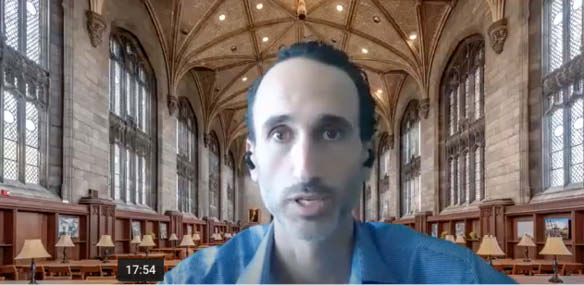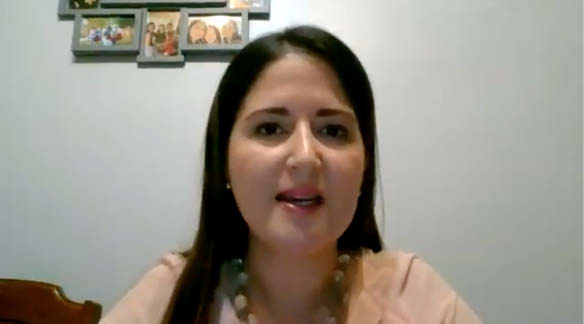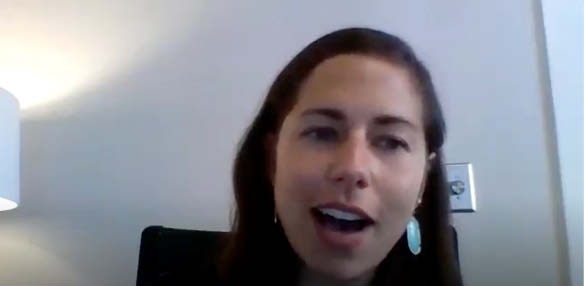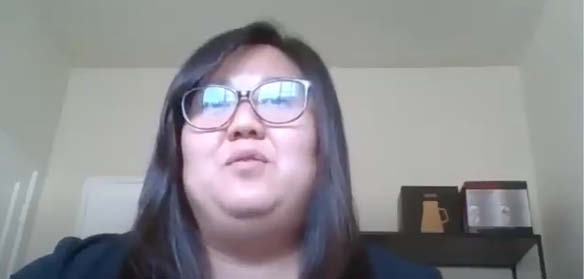Ethnic Media Services: Online Briefing For Ethnic Media
COVID-19 is having a disparate impact on communities of color and immigrants as
widespread fear and confusion fueled by anti-immigrant rhetoric and policies
prevent many immigrants from accessing health care and other services. This
briefing provided information about the programs and supports immigrants are
eligible for, explain how to access them, and share an on the-ground view of the
impact of the pandemic on immigrant communities. Advocates shared what is
happening to fight for the inclusion of immigrants in future legislation.
Dr. Daniel Turner-Lloveras, Assistant Professor of Medicine at Harbor-UCLA/
David Geffen School of Medicine/UCLA gave the state of the COVID-19 pandemic and the
impact of the public charge rule on patients seeking COVID-19 care.

Dr. Daniel Turner-Lloveras, Assistant Professor of Medicine at Harbor-UCLA/
David Geffen School of Medicine/UCLA
Over the past several months, people are talking about numbers going up or down. There are 2.4 million COVID-19 cases in the United States, and 124,235 deaths. This is updated as of today.
Those states that have less cases might not be testing as much.
Hawaii has 782 cases, the lowest number of cases.
The number of cases and deaths have increased including Texas and Florida. In California you’ll see that the number of total cases is continuing to climb by testing.
Although everything is opening up, Dr. Turner-Lloveras says to stay home if you’re able to and wash your hands as much as possible. Try to protect yourself knowing how the virus can be spread.
Dr. Turner-Lloveras wrote an article about public charge and in that piece that talks about what needs to be done so public charge can be minimized for the safety of everyone. One would be health insurance for everyone because this is an infection that affects everyone. If we decide not to give health insurance to a certain population, then they can’t stay as healthy as others who are getting better care.
Luvia Quiñones, Health Policy Director at the Illinois Coalition for Immigrant and
Refugee Rights talked about how immigrants and communities of color are impacted by the pandemic as well as the intersection of COVID-19 and public charge.

Luvia Quiñones, Health Policy Director at the Illinois Coalition for Immigrant and
Refugee Rights
Communities of color have had difficulty getting accurate information because of the language barrier and that news has not been available in people’s languages, Quiñones said.
“The Public Charge rule has further exposed the discrimination and racism in our public health system,” said Quiñones.
Under the public charge rule, immigrants to United States classified as Likely or Liable to become a Public Charge may be denied visas or permission to enter the country due to their disabilities or lack of economic resources.
Quiñones defined Public charge rule not only does it give immigration officials to predict based on an individual’s currents skills, current income and predict if that person will ever in the future rely on the government for any kind of public benefit, but they can look at the individuals credit score, educational level, if they have health insurance, etc., and so it changed how an individual’s immigration application gets examined.
Many immigrants avoid seeking health care, including COVID-19 testing and treatment, over concerns that any assistance they might receive could permanently damage their immigration status.
Madison Allen, Senior Policy Attorney at CLAS talked about immigrant access to and eligibility
for care during the pandemic.

Madison Allen, Senior Policy Attorney at CLAS
The pandemic health and economic impacts have fallen hardest on immigrant communities and families.
We encourage people to seek help and seek treatment regardless of their immigration status.
We are seeing evidence that immigrants are afraid to seek healthcare because of Public Charge.
Testing and treatment related to COVID-19 will not be included in a Public Charge determination. Health care workers should not be asking them about their immigration status.
Undocumented immigrants who have lost their jobs due to the pandemic are also not eligible for the federal Supplemental Food and Nutrition Program, or SNAP, but can access the newly created Pandemic EBT program, which provides food assistance to families that qualify for free lunch programs, Allen said.
Connie Choi, PIF Campaign Field Manager & Strategist at the National Immigration
Law Center talked about changes made at the federal level for health during the pandemic.

Connie Choi, PIF Campaign Field Manager & Strategist at the National Immigration
Law Center
Many immigrants avoid seeking health care, including COVID-19 testing and treatment, over concerns that any assistance they might receive could permanently damage their immigration status.
Citizenship and Immigration Services agency has failed to conduct any meaningful outreach in order to encourage immigrant communities to seek care, said Connie Choi, field manager and strategist at the National Immigration Law Center.
Sometimes immigrants wait until it is critical for their health to seek help.
There is just guidance at the federal level and nothing beyond that to protect and help immigrants seek help safely.

